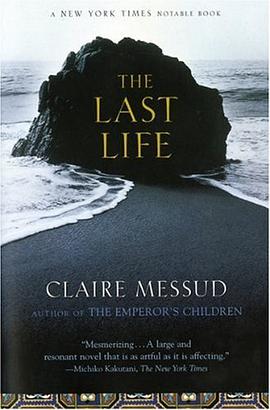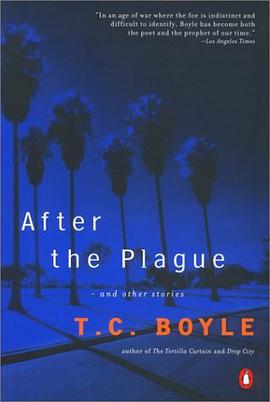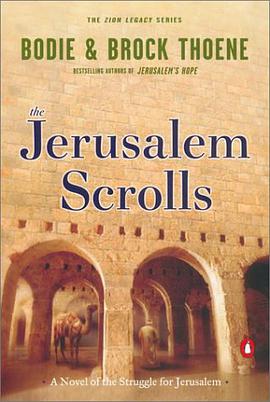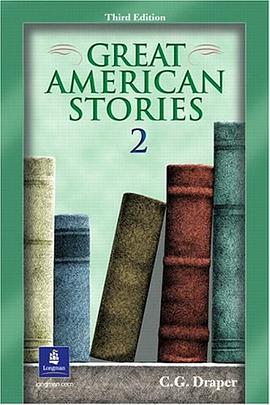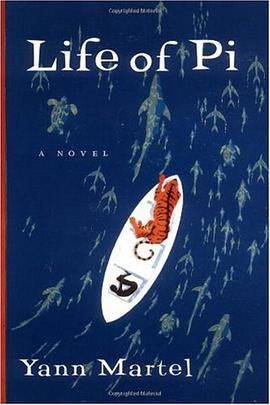

具体描述
Winner of the 2002 Man Booker Prize for Fiction
Pi Patel is an unusual boy. The son of a zookeeper, he has an encyclopedic knowledge of animal behavior, a fervent love of stories, and practices not only his native Hinduism, but also Christianity and Islam. When Pi is sixteen, his family emigrates from India to North America aboard a Japanese cargo ship, along with their zoo animals bound for new homes.
The ship sinks. Pi finds himself alone in a lifeboat, his only companions a hyena, an orangutan, a wounded zebra, and Richard Parker, a 450-pound Bengal tiger. Soon the tiger has dispatched all but Pi, whose fear, knowledge, and cunning allow him to coexist with Richard Parker for 227 days lost at sea. When they finally reach the coast of Mexico, Richard Parker flees to the jungle, never to be seen again. The Japanese authorities who interrogate Pi refuse to believe his story and press him to tell them "the truth." After hours of coercion, Pi tells a second story, a story much less fantastical, much more conventional-but is it more true?
Life of Pi is at once a realistic, rousing adventure and a meta-tale of survival that explores the redemptive power of storytelling and the transformative nature of fiction. It's a story, as one character puts it, to make you believe in God.
作者简介
Yann Martel was born in Spain in 1963 of Canadian parents. Life of Pi won the 2002 Man Booker Prize and has been translated into more than forty languages. A #1 New York Times bestseller, it spent eighty-seven weeks on the list and was adapted to the screen by Ang Lee. He is also the author of the novels Beatrice and Virgil and Self, the collection of stories The Facts Behind the Helsinki Roccamatios, and a collection of letters to the prime minister of Canada, 101 Letters to a Prime Minister. He lives in Saskatchewan, Canada.
Biography
Sometime in the early 1990s, Yann Martel stumbled across a critique in The New York Times Review of Books by John Updike that captured his curiosity. Although Updike's response to Moacyr Scliar's Max and the Cats was fairly icy and indifferent, the premise immediately intrigued Martel. According to Martel, Max and the Cats was, "as far as I can remember... about a zoo in Berlin run by a Jewish family. The year is 1933 and, not surprisingly, business is bad. The family decides to emigrate to Brazil. Alas, the ship sinks and one lone Jew ends up in a lifeboat with a black panther." Whether or not the story was as uninspiring as Updike had indicated in his review, Martel was both fascinated by this premise and frustrated that he had not come up with it himself.
Ironically, Martel's account of the plot of Max and the Cats wasn't completely accurate. In fact, in Scliar's novel, Max Schmidt did not belong to a family of zookeepers -- he was the son of furrier. Furthermore, he did not emigrate from Berlin to Brazil with his family as the result of a failing zoo, but was forced to flee Hamburg after his lover's husband sells him out to the Nazi secret police. So, this plot that so enthralled Martel -- which he did not pursue for several years because he assumed Moacyr Scliar had already tackled it -- was more his own than he had thought.
Meanwhile, Martel managed to write and publish two books: a collection of short stories titled The Facts Behind the Helsinki Roccamatios in 1993 and a novel about gender confusion called Self in 1996. Both books sold only moderately well, further frustrating the writer. In an effort to collect his thoughts and refresh his creativity, he took a trip to India, first spending time in bustling Bombay. However, the overcrowded city only furthered Martel's feelings of alienation and dissolution. He then decided to move on to Matheran, a section near Bombay but without that city's dense population. In this peaceful hill station overlooking the city, Martel began revisiting an idea he had not considered in some time, the premise he had unwittingly created when reading Updike's review in The New York Times Review of Books. He developed the idea even further away from Max and the Cats. While Scliar's novel was an extended holocaust allegory, Martel envisioned his story as a witty, whimsical, and mysterious meditation on zoology and theology. Unlike Max Schmidt, Pi Patel would, indeed, be the son of a zookeeper. Martel would, however, retain the shipwrecked-with-beasts theme from Max and the Cats. During an ocean exodus from India to Canada, the ship sinks and Pi finds himself stranded on a lifeboat with such unlikely shipmates as a zebra, a hyena, and a Bengal tiger named Richard Parker.
The resulting novel, Life of Pi, became the smash-hit for which Martel had been longing. Selling well over a million copies and receiving the accolades of Book Magazine, Publisher's Weekly, Library Journal, and, yes, The New York Times Review of Books, Life of Pi has been published in over 40 countries and territories, in over 30 languages. It is currently in production by Fox Studios with a script by master-of-whimsy Jean-Pierre Jeunet (City of Lost Children; Amélie) and directorial duties to be handled by Alfonso Cuarón (Y tu mamá también; Harry Potter and the Prisoner of Azkaban).
Martel is now working on his third novel, a bizarrely allegorical adventure about a donkey and a monkey that travel through a fantastical world... on a shirt. Well, at least no one will ever accuse him of borrowing that premise from any other writer.
目录信息
读后感
王小波说小说首先应当有趣,“大家在小说中看到的应该是有趣本身”,真是说到我的心坎里去了。可惜,在他不幸的英年早逝之后,有趣的中文小说也再见不到了。我郁闷了许久,郁闷到我的英文粗通,可以不怎么结巴的看完一本小说为止。我记得我看的第一本英文小说是《the Catcher i...
评分Life of Pi是一本我特别喜欢的书。2002年Man Booker奖的获奖书,这本书带给我的将是终身难忘的阅读体验。 一个13岁的男孩Pi,在从印度到美国的海上行程中不幸遭遇海难,他的家人(父母和一个弟弟)全部遇难,Pi侥幸地落到一艘救生艇中,开始了独自一人在太平洋中漂流了三百多...
评分电影里那些飘水花灯、印度舞、暴雨沉船、辽阔海面、飞鱼来袭,浮岛幻影等炫酷镜头透过3D眼镜扑过来让我瞪大眼伸长脖在不舒服的椅子里坐到脊柱炸鞭也不觉着亏,而且故事这么弱,前后也不连贯,迟到半钟头去上个厕所活动活动或者睡一觉起来都不耽误,真是老少妇孺咸宜的漂...
评分王小波说小说首先应当有趣,“大家在小说中看到的应该是有趣本身”,真是说到我的心坎里去了。可惜,在他不幸的英年早逝之后,有趣的中文小说也再见不到了。我郁闷了许久,郁闷到我的英文粗通,可以不怎么结巴的看完一本小说为止。我记得我看的第一本英文小说是《the Catcher i...
评分1,为什么说这是一个能让你相信上帝的故事? 相信有动物的那个故事,和相信上帝,在本质上是一个道理的。 相信上帝并不是因为有确切的证据证明上帝的存在,而是在事实并没有支持,事实甚至在反对这种信念的时候(日心说,演化论及其他)仍然相信,不然这就不是信仰,...
用户评价
相关图书
本站所有内容均为互联网搜索引擎提供的公开搜索信息,本站不存储任何数据与内容,任何内容与数据均与本站无关,如有需要请联系相关搜索引擎包括但不限于百度,google,bing,sogou 等
© 2025 book.wenda123.org All Rights Reserved. 图书目录大全 版权所有




